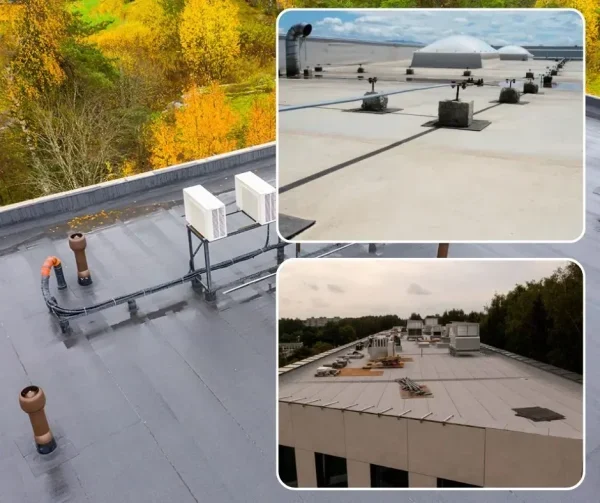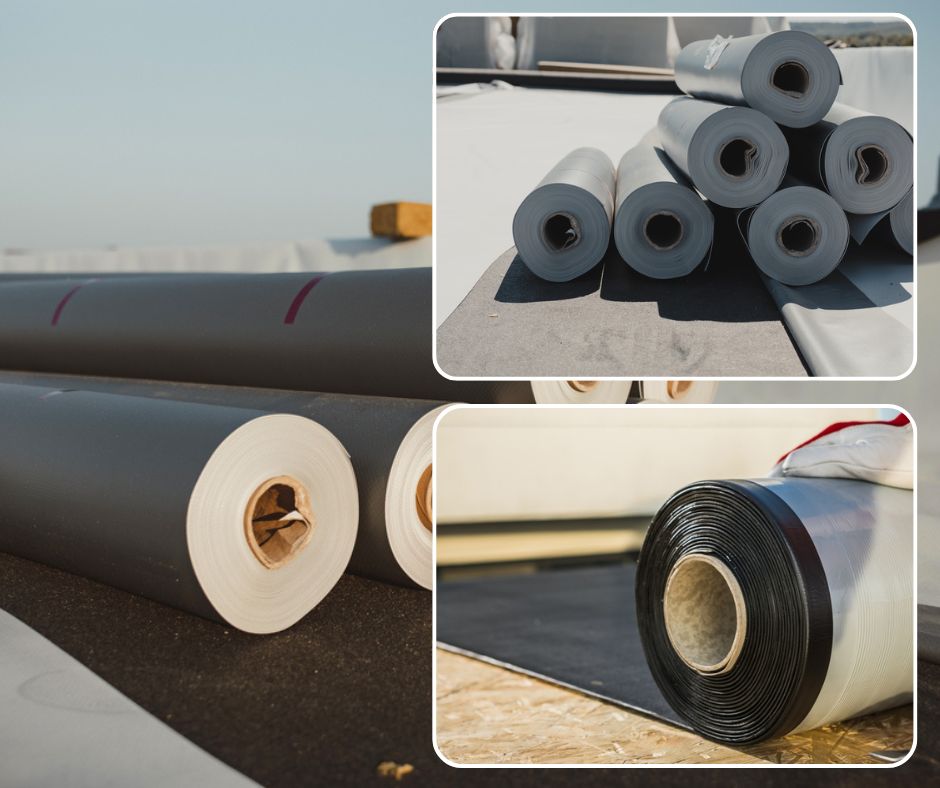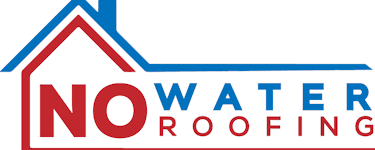Flat Roofing Systems:
Everything You Need to Know About Flat Roofing Base Sheets and More
Flat roofing systems are a popular choice for many buildings, offering a sleek and modern appearance. When it comes to installing or repairing a flat roof, it’s essential to understand the components that make up the roofing system. One crucial element is the roofing base sheet, which plays a vital role in providing a solid foundation for the rest of the roof. In this article, we’ll delve into the world of flat roofing systems and explore the significance of a roofing base sheet. With flat roofing systems being a crucial aspect of building design, it’s no surprise that flat roofing systems are in high demand.
The roofing base sheet is a critical component of any flat roofing system. It’s the bottom layer of the roof, directly attached to the roof deck, and provides a smooth surface for the rest of the roofing materials. Without a proper roofing base sheet, the entire roofing system can be compromised, leading to leaks, damage, and costly repairs.
In this article, we’ll discuss the importance of a roofing base sheet in flat roofing systems, its types, benefits, and how to choose the right one for your project. We’ll also provide answers to frequently asked questions and highlight why No Water Roofing is the ideal partner for your flat roof project.
The Importance of Flat Roofing Base Sheets
The Role of Base Sheets in Flat Roofing
Understanding the foundation of a durable flat roof…
A roofing base sheet is a layer of material that’s applied directly to the roof deck, providing a smooth surface for the rest of the roofing materials. It’s typically made from a durable material, such as asphalt-coated polyester or fiberglass, and is designed to withstand the elements.
The primary function of a roofing base sheet is to provide a stable surface for the roofing membrane. It helps to prevent the membrane from coming into contact with the rough roof deck, which can cause damage and leaks. A good roofing base sheet also provides a smooth surface for the membrane to adhere to, ensuring a watertight seal.
There are several types of roofing base sheets available, each with its own unique characteristics and benefits. The most common types include asphalt-coated polyester, fiberglass, and mineral-surfaced roofing base sheets.

Types of Flat Roofing Base Sheets
There are several types of roofing base sheets available, each with its own unique characteristics and benefits. Asphalt-coated polyester base sheets are a popular choice, offering excellent durability and resistance to weathering. Fiberglass base sheets, on the other hand, are known for their strength and resistance to fire.
Mineral-surfaced roofing base sheets are another option, featuring a layer of mineral granules that provide additional protection against the elements. Each type of base sheet has its own advantages and disadvantages, and the right choice will depend on the specific needs of your project.
When choosing a roofing base sheet, it’s essential to consider factors such as durability, resistance to weathering, and compatibility with other roofing materials.
Flat Roofing Systems: Benefits of a Roofing Base Sheet
A roofing base sheet provides several benefits, including a smooth surface for the roofing membrane, protection against the elements, and increased durability. By preventing the membrane from coming into contact with the rough roof deck, a roofing base sheet helps to prevent damage and leaks.
A good roofing base sheet also helps to ensure a watertight seal, preventing water from penetrating the roof and causing damage to the building. This can help to extend the lifespan of the roofing system, reducing the need for costly repairs and maintenance.
In addition to its functional benefits, a roofing base sheet can also help to improve the overall appearance of the roof. By providing a smooth surface, it helps to create a uniform appearance, enhancing the aesthetic appeal of the building.
Frequently Asked Questions (FAQs) About Flat Roofing Systems and Roofing Base Sheets
As you consider installing or repairing a flat roof, you may have questions about the process, the materials used, and what to expect from your roofing contractor. A flat roofing system is a significant investment in your building, and it’s essential to make informed decisions to ensure that your roof is durable, long-lasting, and performs optimally. In this FAQ section, we’ve compiled a list of frequently asked questions about flat roofing systems and roofing base sheets, covering topics such as the purpose of a roofing base sheet, types of base sheets, installation, maintenance, and more. Whether you’re a building owner, property manager, or facilities manager, our FAQs are designed to provide you with the information you need to make informed decisions about your flat roofing system.
A roofing base sheet serves as the foundation of a flat roof, providing a smooth surface for the rest of the roofing system. Its primary function is to prevent water from seeping into the roof and causing damage to the building. The base sheet acts as a barrier, protecting the roof deck from moisture and preventing it from deteriorating over time. By installing a high-quality base sheet, you can help ensure that your flat roof remains watertight and performs optimally.
The base sheet also plays a critical role in the overall durability and longevity of the roofing system. A good quality base sheet can help to prevent leaks, blisters, and other problems that can occur when water seeps into the roof. By choosing the right base sheet for your flat roofing system, you can help to extend the life of your roof and reduce the need for costly repairs.
In addition to its functional benefits, a roofing base sheet can also help to improve the energy efficiency of your building. By providing an additional layer of insulation, a base sheet can help to reduce heat transfer and keep your building cooler in the summer and warmer in the winter. This can lead to significant energy savings
There are several types of roofing base sheets available, each with its own unique characteristics and benefits. Some of the most common types of base sheets include asphalt-coated polyester, fiberglass, and modified bitumen. Asphalt-coated polyester base sheets are durable and resistant to water and weathering, making them a popular choice for flat roofing systems. Fiberglass base sheets, on the other hand, are lightweight and easy to install, making them a great option for buildings with complex roof designs.
Modified bitumen base sheets are another popular option for flat roofing systems. These base sheets are made from a combination of asphalt and polymers, which provides them with exceptional durability and flexibility. Modified bitumen base sheets are resistant to cracking and can withstand extreme temperatures, making them a great choice for buildings in areas with harsh weather conditions.
When choosing a roofing base sheet, it’s essential to consider the specific needs of your building and the climate in which it is located. By selecting the right base sheet for your flat roofing system, you can help to ensure that your roof is durable, long-lasting, and performs optimally. A professional roofing contractor can help you choose the best base sheet for your building and ensure that it is installed correctly.
Choosing the right roofing base sheet for your project can be a daunting task, especially with the many options available. To make an informed decision, it’s essential to consider several factors, including the type of roofing membrane being used, the climate and weather conditions in the area, and the budget and project requirements. By taking the time to evaluate these factors, you can select a base sheet that meets your needs and provides long-term benefits.
One of the most critical factors to consider when choosing a roofing base sheet is the type of roofing membrane being used. Different types of membranes require different types of base sheets, and choosing the wrong one can lead to compatibility problems and reduced performance. For example, if you’re using a PVC membrane, you’ll need a base sheet that is compatible with PVC.
Another important factor to consider is the climate and weather conditions in the area. If you live in an area with high winds or extreme temperatures, you’ll need a base sheet that can withstand these conditions. A professional roofing contractor can help you choose a base sheet that meets your needs and provides long-term benefits. They can also ensure that the base sheet is installed correctly and that the entire roofing system is functioning optimally.
While it’s possible to install a roofing base sheet yourself, it’s not recommended. Installing a base sheet requires specialized knowledge and equipment, and it’s easy to make mistakes that can lead to problems down the line. A professional roofing contractor has the training and experience needed to install a base sheet correctly, ensuring that it’s securely fastened and properly aligned.
In addition to the technical challenges of installing a base sheet, there are also safety concerns to consider. Roofing work can be hazardous, especially when working at heights. A professional roofing contractor has the necessary safety equipment and training to work safely and efficiently.
By hiring a professional roofing contractor to install your base sheet, you can ensure that the job is done right and that your roof is protected by a durable and long-lasting base sheet. A professional contractor can also provide you with a warranty on their work, giving you peace of mind and protecting your investment.
The lifespan of a roofing base sheet can vary depending on several factors, including the type of material used, the quality of the installation, and the climate and weather conditions in the area. On average, a well-installed base sheet can last for 20 years or more. However, some base sheets may need to be replaced more frequently, especially if they’re exposed to harsh weather conditions or heavy foot traffic.
Regular maintenance and inspection are essential to extend the life of your base sheet. A professional roofing contractor can inspect your base sheet and identify any potential problems before they become major issues. By addressing these problems promptly, you can help to extend the life of your base sheet and prevent costly repairs.
In addition to regular maintenance, it’s also essential to choose a high-quality base sheet that is designed to last. Look for a base sheet that is made from durable materials and is designed to withstand the elements. A professional roofing contractor can help you choose a base sheet that meets your needs and provides long-term benefits.
Yes, a roofing base sheet can be repaired or replaced if it becomes damaged or deteriorated. However, the best course of action will depend on the extent of the damage and the age of the base sheet. If the damage is minor, a repair may be sufficient. However, if the base sheet is old or damaged beyond repair, it may need to be replaced.
A professional roofing contractor can assess the condition of your base sheet and recommend the best course of action. They can also perform repairs or replacements as needed, ensuring that your roof is protected by a durable and long-lasting base sheet.
When repairing or replacing a base sheet, it’s essential to use high-quality materials and follow proper installation techniques. A professional roofing contractor has the training and experience needed to ensure that the job is done right, and that your roof is protected by a durable and long-lasting base sheet.
Using a roofing base sheet provides several benefits, including improved durability and longevity of the roofing system, reduced risk of roof leaks and other problems, and extended life of the roofing membrane. A base sheet acts as a barrier, protecting the roof deck from moisture and preventing it from deteriorating over time.
By installing a high-quality base sheet, you can help to prevent leaks, blisters, and other problems that can occur when water seeps into the roof. A base sheet can also help to improve the energy efficiency of your building by providing an additional layer of insulation.
In addition to its functional benefits, a roofing base sheet can also help to increase the value of your property. A well-maintained roof can be a major selling point for potential buyers, and a base sheet can help to ensure that your roof is in good condition.
Yes, a roofing base sheet is essential for all flat roofing systems. A base sheet provides a smooth surface for the rest of the roofing system and helps to prevent water from seeping into the roof and causing damage to the building. Without a base sheet, the roofing membrane may be exposed to moisture, which can lead to leaks, blisters, and other problems.
In addition to its functional benefits, a roofing base sheet is also required by most building codes. Failure to install a base sheet can result in costly fines and penalties, not to mention the potential for costly repairs down the line.
By installing a high-quality base sheet, you can help to ensure that your flat roofing system is durable, long-lasting, and performs optimally. A professional roofing contractor can help you choose the right base sheet for your building and ensure that it is installed correctly.
Why Consider No Water Roofing for Your Flat Roofing Project?
No Water Roofing is a leading provider of flat roofing services, including installation, repair, and maintenance of roofing base sheets. Our team of experienced professionals has the expertise and knowledge to ensure that your flat roofing system is installed correctly and can perform optimally.
We use only the highest-quality materials, including roofing base sheets, to ensure that your flat roof is durable and long-lasting. Our commitment to customer satisfaction and quality workmanship has earned us a reputation as one of the top flat roofing contractors in the industry.
By hiring No Water Roofing for your flat roof project, you can trust that your roofing system will be installed correctly and will provide years of trouble-free service.

Working With The Best to Bring You The Best...
At No Water Roofing, we’re committed to staying at the forefront of innovation in the roofing industry. To achieve this, we’ve established partnerships with some of the world’s leading material suppliers and technology providers. Our network of trusted vendors includes industry giants like Soprema, Carlisle SynTec Systems, BP, DeckRite, Vipeq, and IKO, among others. These partnerships enable us to bring the latest and greatest products and technologies to our clients, ensuring that our work is always of the highest quality and meets the most stringent standards.
From cutting-edge waterproofing solutions to advanced roofing materials and innovative installation techniques, we’re constantly seeking out the best in the industry to incorporate into our work. By working closely with our suppliers and staying up-to-date on the latest developments, we’re able to offer our clients unparalleled expertise and a wide range of options to suit their unique needs and goals.
Whether you’re looking to upgrade your existing roofing system, address water damage, or simply want to ensure your building is protected from the elements, we’re here to help. With our access to the best products and technologies on the market, we’re confident that we can deliver exceptional results that meet your needs and exceed your expectations.
